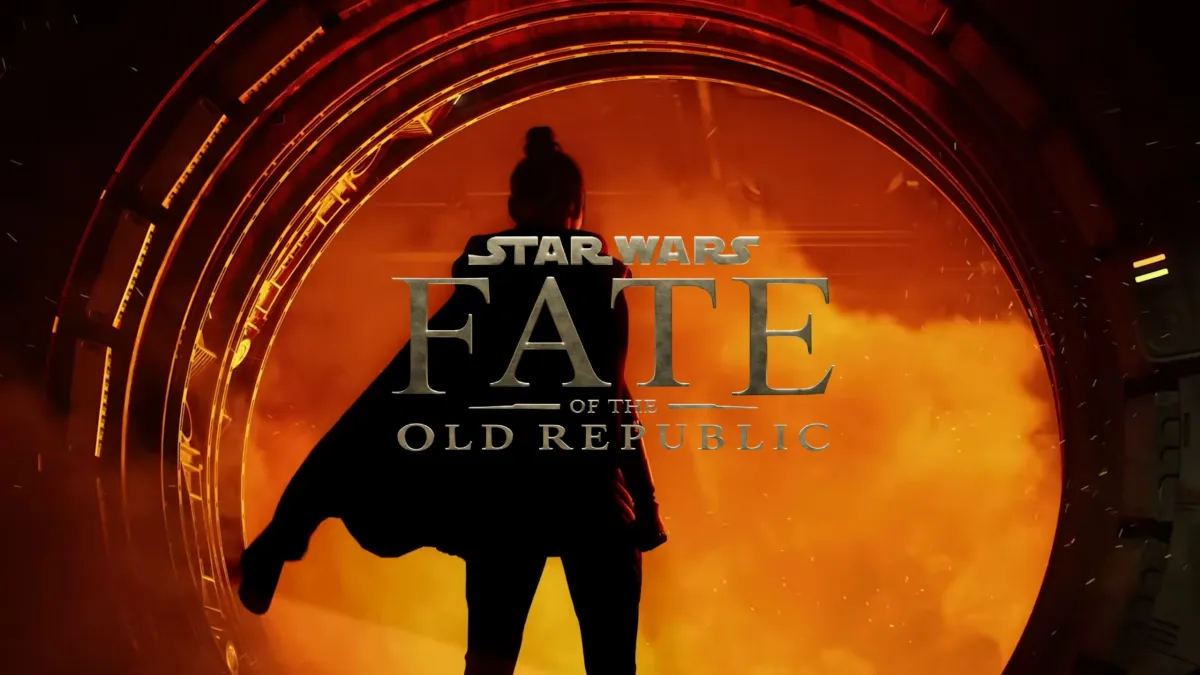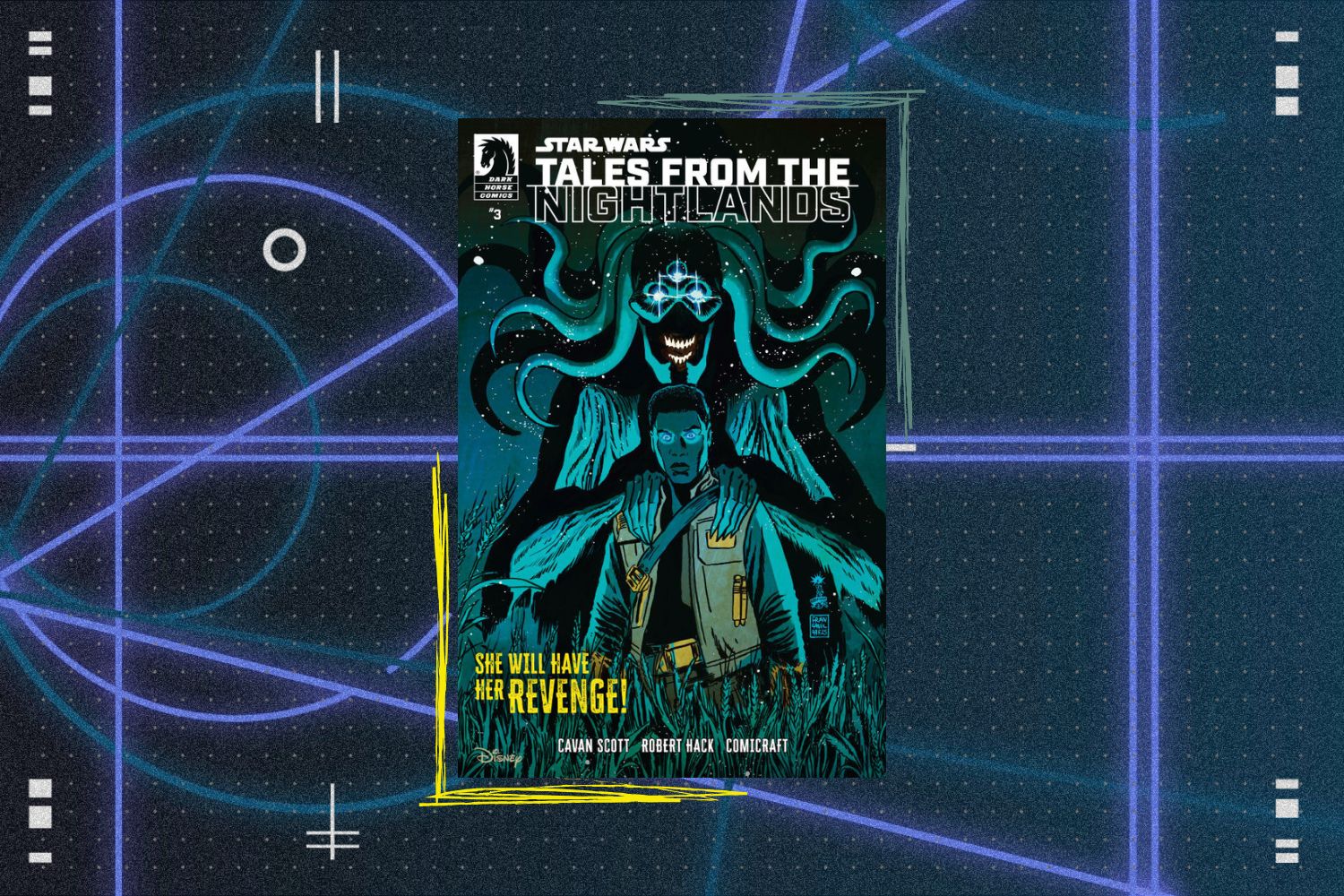Dooku: Jedi Lost Review
The official Youtini review of Cavan Scott's new audio drama, Dooku: Jedi Lost
May 2, 2019
Note: This article may contain affiliate links, meaning we may earn a commission if you purchase through them at no extra cost to you. See our disclaimers for more information.
Aside from “Count,” the character of Dooku has held many titles in the Star Wars universe. He is the leader of the Separatist movement, the backer of the clone army on Kamino, and, most notably, the apprentice to Darth Sidious. However, with the newest addition to Star Wars canon from author Cavan Scott, fans finally have the chance to learn about how Dooku earned yet another title: lost Jedi.
To be entirely transparent, it’s almost difficult to talk about Scott’s Dooku: Jedi Lost in relative terms because it is the very first project of its kind in the entire Expanded Universe. Marketed as an audio drama, it is similar to an audiobook, but with a whole host of voice actors, sound effects, and movie tracks that make the story a more immersive experience.
Nevertheless, the exact format of the story is far from the only reason that Dooku: Jedi Lost is worth checking out. The audio drama scored exceedingly well amongst the Youtini team in all of our major categories.
Plot

The plot of Dooku: Jedi Lost is fast-paced, engaging, and, at times, haunting. The overall story follows Asajj Ventress, a Nightsister and ex-Jedi, as she begins her servitude to Count Dooku. Her first job is to find the Count’s long lost sister, Jenza. To be successful, Asajj has to dive into old records of Dooku’s past and follow the trail of clues that lead to her quarry. However, as Asajj learns more about Dooku’s life, she also discovers some of the dark secrets of his past that ultimately transformed him from a young, idealistic Padawan to a sadistic Sith Lord.
Taking cues from Claudia Gray’s recent novel, Master & Apprentice, Dooku: Jedi Lost dives heavily into Star Wars lore, notably including prophecies. Dooku’s best friend and fellow Padawan, Sifo-Dyas (yes, that Sifo-Dyas), is plagued by horrible visions of what is to come in the future. Dooku himself experiences moments of foresight related to his home planet of Serenno and the legendary beast said to live within it. Jedi Master Lene Kostana, a role model for Dooku, spends much of her time looking into ancient Sith artifacts. From all this dark material rises one important question: what exactly is a Jedi’s role in the galaxy?
Characters
The character work in Dooku: Jedi Lost is second-to-none. It takes Count Dooku as seen in the movies—more or less a mustache-twirling villain without any well-defined motive—and transforms him into a dynamic character with a well-defined trajectory. More than that, it makes him relatable. Never before have fans been able to sympathize with Dooku, but Scott manages to change that.

Count Dooku, being the titular character of the project, obviously receives most of the character development. His past is slowly revealed over the course of the story via holos of himself from when he is a young Padawan at the Jedi Temple all the way up until he is a seasoned Master on the Jedi Council. As the reader progresses through the story, the step-by-step fall of Dooku becomes more and more apparent in a tragedy reminiscent of Anakin himself. What’s even more striking, however, is the realization that Dooku actually had good, sound reasons for wanting to leave the Order, and that in many ways, it was the Jedi Council who failed him.
The other major character who receives a lot of attention is Dooku’s assassin, Asajj Ventress. As Asajj learns more about Dooku’s past, she also reveals more about her own future. The more she becomes enmeshed in Dooku’s plots, the more she seems to fall victim to his control. Throughout the story, she is haunted by a “vision” of her murdered Jedi Master, Ky Narec. While the authenticity of his apparent Force manifestation is left ambiguous, his impact is not. Ky serves as Asajj’s moral compass throughout the story, as well as a mirror in which Asajj can inspect herself and her own actions. The question she must ultimately answer is whether she is strong enough to forge her own path or if she will fall prey to Dooku’s demands.
Finally, a review of the characters in this story would be incomplete without a mention of the many familiar faces that appear such as Qui-Gon Jinn, Yoda, and Palpatine, as well as the recently introduced Rael Averross. Several interesting newcomers also make their debut like Lene Kostana, Yula Braylon, and Cenevax. But even that extensive list doesn’t cover the other characters with whom fans may be somewhat familiar, like Sifo-Dyas, Tera Sinube, and Ky Narec and more.
Originality
There are some striking similarities between Cavan Scott’s work and other intellectual properties. The most notable is how similar Dooku’s younger days running around the Jedi Temple are to Harry Potter’s time at Hogwarts. That may just be due to the story revolving around a gifted young boy receiving a supernatural education, but the parallel seems undeniable given that several Youtini staffers brought it up independently!

Despite those comparisons, from a Star Wars perspective, Scott’s story is wholly original. Besides Anakin Skywalker, Star Wars fans have never really gotten the story of any character from childhood to adulthood—especially not a villain. Count Dooku receiving that treatment in this story was so refreshing and so well done that it actually elevates his character on the screen.
Not to mention, the format of Scott’s story also wins it major points in this category. The audio drama format was reminiscent of old radio dramas, but benefited heavily from modern technology and an immensely talented cast of voice actors. Nothing quite like this project has ever been done in the Expanded Universe, but we hope that we have a million more well on the way.
Writing
Cavan Scott has done his fair share of writing in the Star Wars universe, previously working on children’s books and both the Star Wars Adventures and Tales from Vader’s Castle comic series. However, some fans may not know how experienced he was with the audio drama format before creating Dooku.
After finishing this story, that past experience is crystal clear.
The pacing of the story is brilliant. There is very little wasted space. Every chapter feels important and, in fact, gives the reader essential information that will come into play later.
While switching between different time periods can be detrimental to a story’s structure, Scott manages to do so with ease. The jumps between Dooku’s past and Ventress’ present are well-timed and effectively used. Rather than leaving the reader with whiplash, they give a nice pause in the story to digest what has just been revealed, as well as a convenient way to jump ahead in Dooku’s timeline.
Additionally, most writers have trouble writing a certain age; they excel either with kids, teens, young adults, or full adults, and Scott didn’t seem to have a problem with any of them. The kids sounded like kids, and the adults sounded like adults, and for a writer, that’s a much higher compliment than it may seem.
Entertainment

Dooku: Jedi Lost does not lack in entertainment. The voice actors offer varied and effecting performances. The sound effects are expertly placed. The music selection, which can sometimes be jarring in Star Wars audiobooks, was spot on. Overall, it felt very much like listening to a Star Wars play, and a great one at that.
From its opening scene in which the listener can hear wind whipping around Asajj Ventress as she ruminates on the edge of a cliff to the climactic battle on the planet of Serenno, readers will feel immersed in what’s going on. Rather than reading a story, you’re in it. And it’s a hell of a fun ride.
If you’re left with any doubt, suffice it to say that several Youtini team members finished listening to the almost seven-hour project in a single day—with one doing it in a single car ride!
Additional Staff Thoughts:
The wraps that Kostana, Dooku, and Sifo-Dyas use are called the Balm of the Luminous. No way that's not connected to the rumored "Project Luminous."
Rael Aveross, who didn't even exist a few weeks ago, is now such a huge part of the prequel era! In fact, he's the one who introduces Dooku to Palpatine for the first time!
Queen Ekay of Naboo (mentioned only) was named after EK Johnston in honor of her work on Queen's Shadow.
Stressing the innocence of Dooku as a child was essential for his character. He may not have had any darkness in him at all to start. In fact, if he did, how did Yoda never sense it?
It's becoming more apparent that there are many more prophecies than just the Chosen One prophecy. We want to hear them all!
This story was one of the biggest surprises in the recent Expanded Universe. It wasn't one we would have thought to ask for, but now it's one we can't imagine not having.
It's no wonder some of these characters are falling to the Dark Side when they're given names like "Doo"
Give us more audio dramas!!!
Conclusion
When the Star Wars Expanded Universe is at its best, it takes the information given to fans in the films and elevates it. Dooku: Jedi Lost does exactly that.
From the captivating plot to the deft character development to the powerful execution in the audio drama format, Dooku: Jedi Lost is an absolute winner. It receives a ringing Youtini endorsement.
If you choose one piece of Star Wars media to enjoy this year, you would do well to pick Dooku: Jedi Lost!
Charles Hanckel is a Content Creator at Youtini and a Council Advisor. A family medicine doctor based in Charlotte, North Carolina, Charles is a lifelong Star Wars fan who loves exploring the galaxy through books like the Han Solo Trilogy and Darth Bane series. He co-hosts The Living Force Podcast and enjoys reading, writing, and spending time with his dog, Koda.













